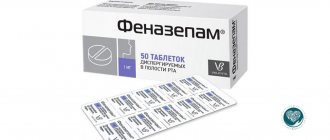Types of headaches during menstruation
The female body is a very complex mechanism, the work of which has not yet been fully studied. For example, scientists do not give a clear answer to the causes of premenstrual syndrome (PMS), from which many girls suffer. And although the concept of PMS includes a wide range of different symptoms, most often three out of four women of childbearing age during this period complain of headaches.
Sometimes it is very difficult to distinguish menstrual headaches from “regular” ones. Conventionally, they can all be divided into two types:
- tension headaches;
- migraine.
The cause of tension pain is various stressful situations, overwork, lack of sleep. This type is characterized by a bilateral pressure manifestation, which may be accompanied by nausea, sensitivity to loud noises and bright lights. Such pain most often does not pose a big problem, since it is usually easily relieved with special medications.
But with the second type of headache, everything is much more complicated. Migraine is most often a hereditary disease. It is characterized by attacks of throbbing pain of varying intensity (from moderate to severe), which can be intensified under the influence of many factors (bright light, loud sounds, physical or mental stress). It can be either unilateral (pain is concentrated in one part of the head) or bilateral (both halves hurt). In some cases, pulsating attacks can turn into cutting or pressing sensations. Often this manifestation is accompanied by severe nausea (including vomiting), eye pain, and changes in blood pressure (hypotension or hypertension). Menstrual migraine belongs to this type.
Result
When visiting the clinic, a woman receives effective treatment using high-precision equipment. There are also ongoing promotions, thanks to which the patient will save money. In addition, the clinic will not only effectively treat the disease, but also take the necessary tests. You can consult with various specialized doctors. The goal of the clinic is qualified medical care to achieve good health and improve the quality of life. If a woman is indicated to stay in a hospital setting, comfort will be ensured by modern equipment and new furniture. Thanks to this, the specialist is able to provide emergency assistance. The doctor gives recommendations. Namely: promptly and completely cure infectious and inflammatory disease of the pelvic organs. A woman needs to stop smoking and drinking alcohol. Maintain a healthy lifestyle, which includes proper nutrition (excludes fatty, smoked, fried, salty foods), and exercise. Carefully observe the rules of personal hygiene. Visit the gynecological office regularly (at least twice every 12 months).
Causes of menstrual migraine
The menstrual cycle is regulated by hormonal changes. Numerous observations confirm the dependence of migraine on fluctuations in the levels of estrogen, progesterone, prolactin and aldosterone. It is believed that it is a sharp change in the concentration of estrogen that triggers a migraine attack. This is proven by the fact that most women encounter this problem only in adolescence.
The following disorders may be the causes of headaches:
- imbalance of sex hormones, which occurs before the onset of menstruation and during ovulation, at the time the egg is released from the burst follicle (due to hormonal problems, spasm of the blood vessels occurs in the circulatory system, which leads to deterioration of brain nutrition and the development of migraines);
- disruption of the production of adrenaline and norepinephrine in the adrenal glands, which leads to vasospasm and headaches;
- a decrease in the concentration of chemicals that normalize the functioning of the nervous system (a decrease in the pain threshold leads to the fact that even a minimal headache is perceived more acutely and severely).
Various neurotransmitters also play a role in the development of premenstrual syndrome. First of all, this is serotonin, the amount of which fluctuates greatly during menstruation, causing mood instability and depressive feelings. Reduced concentrations of serotonin lead to feelings of fatigue, sleep problems and uncontrollable food cravings.
Due to the fact that water-salt imbalances aggravate migraine symptoms, food preferences also play an important role. During this period, consumption of salty, fatty foods, caffeine, and alcohol contributes to the worsening of headaches. Reduced levels of certain vitamins (in particular, group B) and minerals can also negatively affect the course of premenstrual symptoms.
Could spotting indicate an ectopic pregnancy?
An ectopic pregnancy is when a fertilized egg deviates from its intended path and implants in the wrong place - outside the uterine cavity.
The appearance of bloody discharge from the genital tract is not uncommon during an ectopic pregnancy. Unlike menstrual bleeding, they have a thicker consistency and darker color.
It should be remembered that in the early stages, the signs of ectopic (ectopic) pregnancy are very similar to the signs of normal pregnancy (delayed menstruation, swelling of the mammary glands, positive urinary pregnancy test).
Any suspicion of an ectopic pregnancy is an indication for emergency hospitalization, as this is a life-threatening condition.
Treatment of menstrual migraine
Any headache is a reason to contact a specialist. To establish a primary diagnosis, such a doctor is a neurologist who can prescribe medications to relieve an attack that has already occurred and select a method to prevent new manifestations.
Perennial migraines can be caused by various diseases. For example, after surgery on the ovaries there is an unstable menstrual cycle and acne, then the woman needs to consult a gynecologist and endocrinologist.
Various gynecological diseases can also provoke menstrual migraine or similar attacks. For example, for a benign uterine tumor, headache is often the only external symptom. Endometriosis causes pain not only in the affected organs, but also provokes severe migraines. Adenomyosis, polycystic ovary syndrome, and various inflammatory processes also affect the production of sex hormones and are accompanied by headaches.
Necessary examinations
To make an accurate diagnosis, patients with suspected menstrual migraine are recommended to undergo the following tests:
- general blood test (it is especially important to find out the level of hemoglobin) and urine;
- blood tests for hormones (ovaries, adrenal glands, thyroid gland, pituitary gland);
- ultrasound examination of the pelvic organs to detect tumors, cysts, inflammatory processes, etc.
In addition, it is possible to prescribe other studies at the discretion of the doctor (ultrasound examination of blood vessels, MRI of the brain, and so on).
Drug treatment
All treatment can be divided into two options:
- preventing the onset of migraines;
- stopping the attack that has occurred.
To relieve attacks, specific anti-migraine drugs – triptans – are considered the most effective. Non-steroidal anti-inflammatory drugs and antispasmodics are also often prescribed. But the use of these drugs (even in large doses) may not give the expected effect due to the specificity of menstrual migraine.
In this case, it is most effective to act proactively to prevent the onset and development of migraine. For preventive purposes, these same drugs are prescribed a couple of days before the expected onset of an attack. Magnesium preparations are also used as part of prevention. The most effective is complex treatment, which begins before the onset of an attack and lasts at least 5-7 days.
Important! Therapy methods and medications can only be prescribed upon examination and consultation with a specialist.
Hormone therapy
Leveling hormonal levels with the help of medications and the use of oral contraceptives and intrauterine devices sometimes leads to the disappearance or reduction in the intensity of menstrual migraines. The use of gels and patches containing estrogen also has a positive effect as a preventative measure.
In which cases
- The presence of painful menstruation in women over thirty years of age is a secondary form of algomenorrhea. It is observed in 25 percent of women, occurring in a moderate or severe degree, and accompanied by characteristic signs and decreased activity. In the secondary form of the disease, heavy menstruation often appears. Secondary algomenorrhea is divided into the following groups: A disease that is accompanied by a psycho-emotional disorder (deterioration or increase in appetite, depression, excessive irritability, unusual perception of sound, light and smell). The presence of vegetative manifestations (attacks of nausea, gas formation in the intestines, hiccups, vomiting). The presence of vegetative-vascular manifestations (severe headache, dizziness, lightheadedness, rapid heartbeat, numbness of the extremities). With an endocrine-metabolic manifestation (profuse vomiting, skin itching, joint pain, sudden appearance of sweetness). How pronounced the symptoms will be depends on how old the woman is and the state of her body.
- To eliminate diseases of the genital organs. When diagnosing a disease of the genital organs that has caused algomenorrhea, the doctor prescribes therapy that includes taking antibiotics, antifungal and antiviral drugs. When using drugs based on progesterone, ovulation is suppressed, intrauterine pressure and the intensity of uterine contractions are reduced. To achieve a positive result, a woman is advised to take oral contraceptives.
- To stop the inflammatory process. Using electrophoresis and a medicinal bath, you can get rid of the inflammatory process. In the secondary form of algomenorrhea, symptomatic therapy is used, the goal of which is to reduce pain during menstruation and alleviate the symptoms associated with the psycho-emotional state of the patient. The goal of treating painful menstruation is to get rid of the symptoms and pathogens of the disease. Therapy consists of several stages, the number of which is determined by the severity of the disease. For one woman, a physiotherapeutic procedure is enough, while for another, surgical intervention is necessary.
Memo for the patient
Every woman should know:
- You should not self-medicate, but seek help from a doctor if you have severe and regular headaches, as well as if there is a change in its nature and duration. Discomfort during the menstrual cycle and disruption of its flow are an important reason to consult a doctor, regardless of age.
- A healthy lifestyle and proper nutrition are the right decision. You can prevent the development of migraines by following a daily routine, regular walks before bed, maintaining physical activity, and getting enough sleep. In the diet, it is necessary to limit the consumption of “fast” carbohydrates, alcohol and foods that contribute to fluid retention in the body. Maintaining fluid balance is very important for women prone to headaches.
- For effective consultation with a neurologist (and other doctors), it is advisable to keep a diary of health observations, in which you should indicate not only the presence or absence of headaches, but also their intensity. Information about blood pressure, heart rate, and other indicators of well-being will not be superfluous.
- Follow all doctor's recommendations. These can be drugs of various effects, a therapeutic diet, maintenance therapy in the form of vitamin and mineral complexes. You should go for a therapeutic massage of the back and cervical-head region only on the recommendation of your attending physician.
At the Clinical Brain Institute, you can undergo a full examination to identify the causes of headaches during menstruation and prevent the occurrence of migraine attacks. We have highly qualified specialists and the most modern equipment. Our doctors will conduct an examination and prescribe effective treatment.
Why is it necessary to treat period pain in the clinic?
- Providing a full range of services. The patient can save money and undergo diagnostics and treatment in one clinic. The doctor writes out directions and conducts a detailed consultation regarding the woman’s actions.
- The clinic is attended by several dozen highly qualified specialists who regularly attend courses and improve their skills. With their help, a woman can get rid of not only the signs of the disease, but also get rid of the root cause.
- If necessary, a woman is provided with a comfortable room and 24-hour medical supervision.









